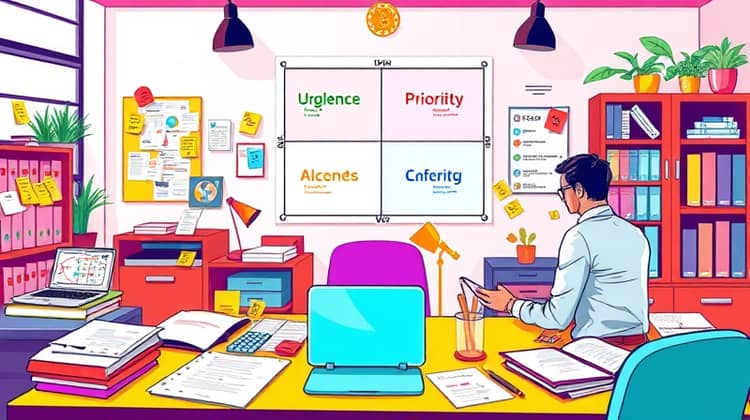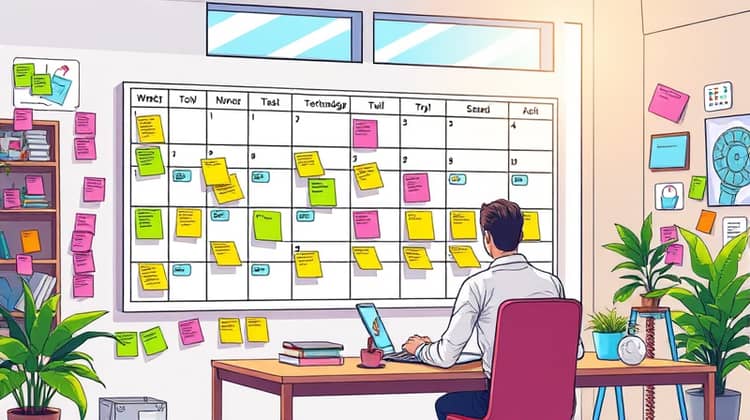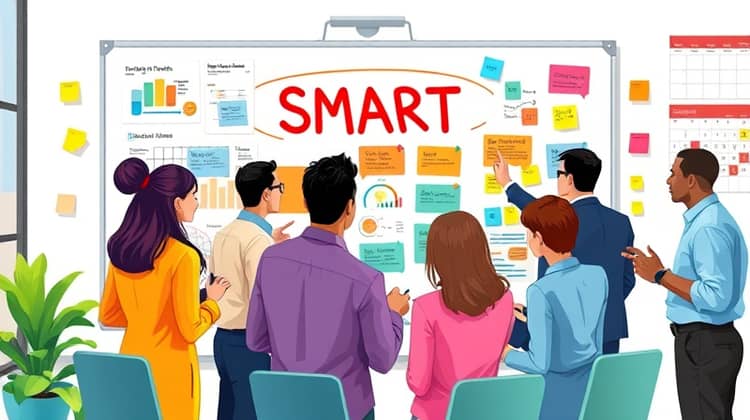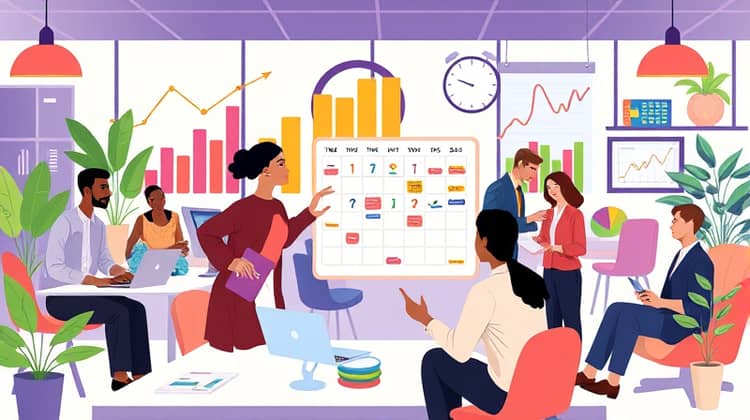Time management is a crucial skill for professionals striving for success in today’s fast-paced work environment. With the myriad of tasks and responsibilities faced daily, effective time management not only enhances productivity but also reduces stress and prevents burnout.
This article explores various time management strategies that can aid professionals in prioritizing their work, delegating tasks effectively, and utilizing their time more efficiently, ultimately leading to a more balanced and productive professional life.
1. Prioritization Techniques

Effective prioritization of tasks is fundamental in managing time wisely. Professionals often juggle multiple duties, and knowing which tasks to focus on first can dramatically alter productivity.
Prioritization techniques provide frameworks that help individuals identify and tackle their most crucial tasks, thereby making better use of their time.
a. Eisenhower Matrix
The Eisenhower Matrix is a time management tool that helps individuals distinguish between what is urgent and what is important. It divides tasks into four quadrants based on these criteria, guiding users in prioritizing their workload effectively.
By placing tasks in categories such as urgent and important, non-urgent but important, urgent but not important, and neither urgent nor important, professionals can better allocate their time and energy. This matrix encourages the delegation of low-priority tasks or the elimination of those that do not contribute significantly to goals.
- Build a list of your tasks.
- Place them in one of the four quadrants: urgent and important, important but not urgent, urgent but not important, neither urgent nor important.
- Focus on completing the tasks in the 'urgent and important' quadrant first.
b. ABCDE Method
The ABCDE Method is a straightforward prioritization technique that helps individuals categorize tasks based on their importance. This method involves assigning a letter to each task: 'A' for very important tasks, 'B' for important, 'C' for casual, 'D' for delegate, and 'E' for eliminate.
By using this method, professionals can easily visualize their priorities and focus on what truly matters, ensuring that essential tasks are completed first and that less significant duties do not consume valuable time.
c. Pareto Principle (80/20 Rule)
The Pareto Principle, or the 80/20 Rule, asserts that 80% of the effects come from 20% of the causes. In time management, this translates to focusing on the vital few tasks that yield the most significant results while minimizing attention on the less impactful activities.
Recognizing which tasks contribute most to overall success can help professionals prioritize their efforts efficiently and make better use of their time and resources.
2. Effective Delegation

Delegation is a key skill that every professional should cultivate to enhance productivity. By assigning tasks to others, individuals can focus on more critical aspects of their work, allowing for increased efficiency and better results overall.
Effective delegation involves understanding the strengths and weaknesses of team members, ensuring that tasks are assigned to the right individuals for optimal outcomes.
- Identify tasks that can be delegated easily.
- Communicate expectations clearly.
- Monitor progress without micromanaging.
3. Time Blocking

Time blocking is a scheduling method that involves designating specific blocks of time for particular tasks or activities throughout the day. This technique can help professionals maximize focus and minimize distractions as they dedicate time solely to one task at a time.
By organizing the workday into manageable chunks, individuals can improve their productivity and efficiency, ensuring that they remain focused on their top priorities.
- Allocate specific time slots for each task on your schedule.
- Stick to your allocated time to help develop a disciplined work habit.
- Use a digital calendar or planner for better management of your time.
4. Setting SMART Goals

Setting SMART goals—specific, measurable, achievable, relevant, and time-bound—provides professionals with a clear roadmap towards their objectives. By defining goals in this structured way, individuals can focus their efforts and enhance their likelihood of success.
SMART goals help eliminate ambiguity, ensuring that professionals know what they need to achieve and can track progress effectively over time.
- Ensure goals are clear and specific.
- Measure progress regularly to stay on track.
- Break down larger goals into smaller, manageable milestones.
By adhering to the SMART criteria, professionals can create actionable plans that enhance motivation, allowing them to stay committed to their objectives with greater clarity and direction.
5. Limiting Distractions

In an era of constant notifications and information overload, limiting distractions has become a paramount task for today's professionals. Identifying and minimizing potential distractions can significantly boost focus and productivity.
By creating an environment conducive to concentration, individuals can ensure that they devote their energy towards meaningful work rather than being sidetracked by interruptions.
- Identify common distractions in your work environment.
- Set boundaries around your workspace to minimize disruptions.
- Utilize apps or tools that block distracting websites or notifications.
Taking the time to analyze personal habits and actively working to reduce distractions can lead to improved focus and a greater sense of accomplishment in achieving tasks.
6. The Pomodoro Technique

The Pomodoro Technique is a time management method that encourages users to break work into intervals, traditionally 25 minutes in length, separated by short breaks. This technique is beneficial for maintaining focus and stamina over longer work periods.
By incorporating regular breaks, the Pomodoro Technique enables professionals to recharge, reducing the likelihood of burnout and enhancing overall productivity.
7. Review and Reflect

Regularly reviewing and reflecting on progress is crucial for effective time management. This practice allows professionals to assess what strategies and methods are working and which may need adjustment.
By taking time to evaluate daily or weekly performance, individuals can adjust their priorities, address any inefficiencies, and refine their approach to future tasks.
8. Use Technology Wisely

In the digital age, leveraging technology can significantly enhance time management. Various tools and apps are designed to help individuals organize tasks, schedule responsibilities, and track progress more effectively.
Using technology wisely can streamline workflow processes, automate repetitive tasks, and allow for easier collaboration among team members.
- Utilize task management tools like Trello or Asana.
- Schedule appointments and deadlines using calendar apps.
- Leverage communication platforms to improve team collaboration.
However, it is essential to balance technology use with the potential for distraction; thus, setting boundaries around notifications is critical to maintaining focus.
Conclusion

In conclusion, mastering time management strategies is essential for professionals looking to enhance their productivity and work-life balance. Implementing techniques such as prioritization, effective delegation, and the use of technology can lead to significant improvements in productivity.
By being proactive in managing time and focusing on the most impactful actions, individuals can achieve their professional goals while minimizing stress and fostering a more enjoyable work environment.














